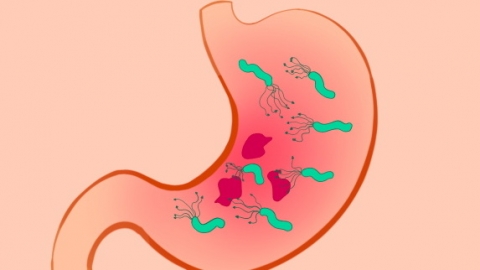What are the symptoms of Helicobacter pylori infection?
Under normal circumstances, Helicobacter pylori infection easily causes inflammation or dysfunction of the gastric mucosa. Common symptoms mainly include discomfort or pain in the upper abdomen, acid reflux and heartburn, nausea and vomiting, abdominal distension and belching, and decreased appetite. Detailed analysis is as follows:

1. Discomfort or pain in the upper abdomen: After infection, dull, distended, or burning pain often occurs in the upper abdomen, concentrated below the xiphoid process and in the left upper quadrant. Symptoms may worsen when fasting or 1-2 hours after meals. Some patients experience pain before or after meals. As the infection progresses, the pain may change from intermittent to persistent, affecting eating and rest.
2. Acid reflux and heartburn: Gastric acid secretion becomes disordered and increases. Patients often feel acidic fluid refluxing into the esophagus or even the mouth, accompanied by a burning sensation behind the sternum or in the upper abdomen. Symptoms are more pronounced when lying down, bending over, or consuming spicy foods.
3. Nausea and vomiting: Gastric inflammation irritates the mucosa, causing abnormal peristalsis, which easily leads to nausea. In severe cases, vomiting of gastric contents or acidic gastric fluid may occur. Some individuals experience temporary relief after vomiting, but symptoms may recur after eating, affecting nutrient absorption over time.
4. Abdominal distension and belching: Digestive function is impaired, causing food fermentation and gas production, leading to a feeling of fullness and tightness in the abdomen. Frequent belching and flatulence may provide relief, but belching might be accompanied by an acidic or foul odor, causing social discomfort.
5. Decreased appetite: Due to recurring discomfort in the upper abdomen, patients lose interest in food, eat less, and some intentionally restrict food intake. Long-term effects may lead to slight weight loss and fatigue.
Patients are advised to maintain regular meal times, avoid overeating, and reduce consumption of spicy, overly acidic, or greasy foods. Attention should also be paid to food hygiene, avoiding sharing eating utensils with others. A regular lifestyle, avoiding late nights and fatigue, is also important to reduce the burden on the stomach and alleviate discomfort.







